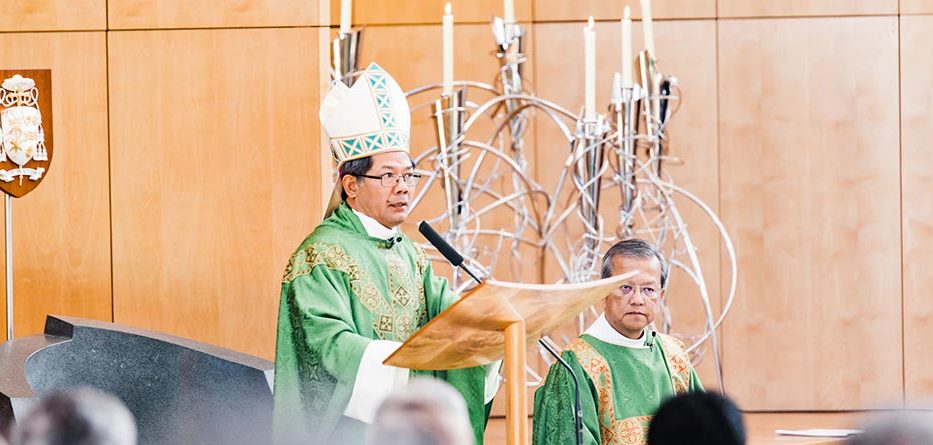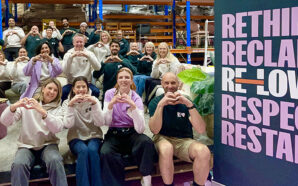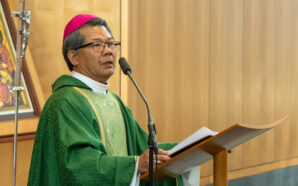Most Reverend Vincent Long Van Nguyen OFM Conv DD STL, Bishop of Parramatta
Homily for the 23rd Sunday in Ordinary Time in Year A at St Gregory’s Catholic Church, Kurrajong
17 September 2017
Dear friends,
We live in a world that is full of conflict, injury and pain. With globalisation and technological advancement, there is a searing recognition of the lengths to which the inhumanity of human beings against one another can go. Crimes against humanity and heinous atrocities make us shudder. Threats of nuclear war and random acts of terrorism are rising. We have struggled throughout history for justice and peace, for fairness and freedom, for tolerance and harmony. Still the suffering goes on: violence breeding more violence, exploitation escalating seemingly beyond remedy.
It is in this context that the Word of God speaks to us. The book of Ecclesiasticus exhorts us to show love in place of hate, compassion in place of resentment and forgiveness in place of anger. Jesus likewise teaches us to forgive not seven times but 77 times those who have offended us. This is a way of saying forgiveness is an essential requirement for faithful Christian discipleship. Forgiveness is meant to be our way of life. There is no limit to forgiveness just as there is no limit to love, which is revealed in Christ.
At face value, the command to forgive again and again seems humanly impossible. But the good news in all this is that we are not alone when we are called to forgive or to seek reconciliation. In it all, God is with us. God has incorporated us into his own very being by his gift of life and love to us. He has shown us the ultimate image of forgiveness when Jesus died on the cross for us all. Forgiveness is only possible if we remember God is within and God is our strength. That promise upholds us even when our willingness to reconcile with another or forgive is rejected.
We are called as Christians to witness to the incredible forgiving love of God in Christ. “Forgive us our sins as we forgive those who sin against us”. Forgiveness is possible because we have been reconciled with God in Christ. Within his life, suffering death and resurrection, there is a relationship that holds – a relationship between God and humanity revealed as indestructible. A love crucified but not destroyed. It is this love that has lived and poured out life and love and forgiveness ever since. From here on, human struggles for life, love and forgiveness will not be in vain.
Pope Francis is fond of saying that the Church is not a museum for saints or an enclosure for the virtuous. It is more like a field hospital, which heals the wounded, strengthens the weak and lifts up the lowly. It is a place where everyone can feel welcomed, loved, forgiven and encouraged to live according to the Gospel. Our very credibility is at stake when we lack forgiving and compassionate love for those who are on the periphery or estranged from the Church by one reason or another.
Our mission is to forgive, and to reveal the forgiveness of God, in and through Jesus Christ. We learn to be a forgiving and inclusive Church – a Church that reaches out to those who struggle and fall short of the Christian ideal; a Church that does not demean or marginalise people on account of their estrangement for one reason or another. It is a Church that dialogues, that accompanies, that encourages, that engages with people’s struggles, wounds and failings. We do so with respect, empathy, compassion and humility. We are reminded of how the early Church accommodated and enabled people, like Thomas, to make their personal journey from doubt to faith, brokenness to wholeness. Today more than ever, we are called to make this ecclesial inclusiveness, this ‘big tent church’ a real experience for all of our brothers and sisters.
Brothers and sisters,
You have probably read or heard of my pastoral letter on the same-sex marriage postal survey. Many Catholics find it helpful while others do not think much of it. However, I believe that the Church – in the words of Pope Francis – has to be a place where those who are alienated feel welcomed, loved, forgiven and encouraged to live according to the Gospel. Jesus rejected no one – not tax collectors and adulterers; not those who denied or even betrayed him. However, it was often those who did not think of themselves as sinners who alienated themselves from God’s mercy.
Thus, in this time, we should do well to heed the words of our Lord: “What I desire is mercy, not sacrifice. For I have come to call not the righteous, but sinners”. Regardless of the outcome of the survey, we must commit ourselves to the task of reaching out to our brothers and sisters who have same-sex attraction, affirming their dignity and accompanying them on our common journey towards the fullness of life and love in God.
May we learn to experience the depth of God’s forgiving love in Christ and may we in turn learn to expand our hearts, stretching its limits to match the breadth and the height, the length and the depth of God’s love.









